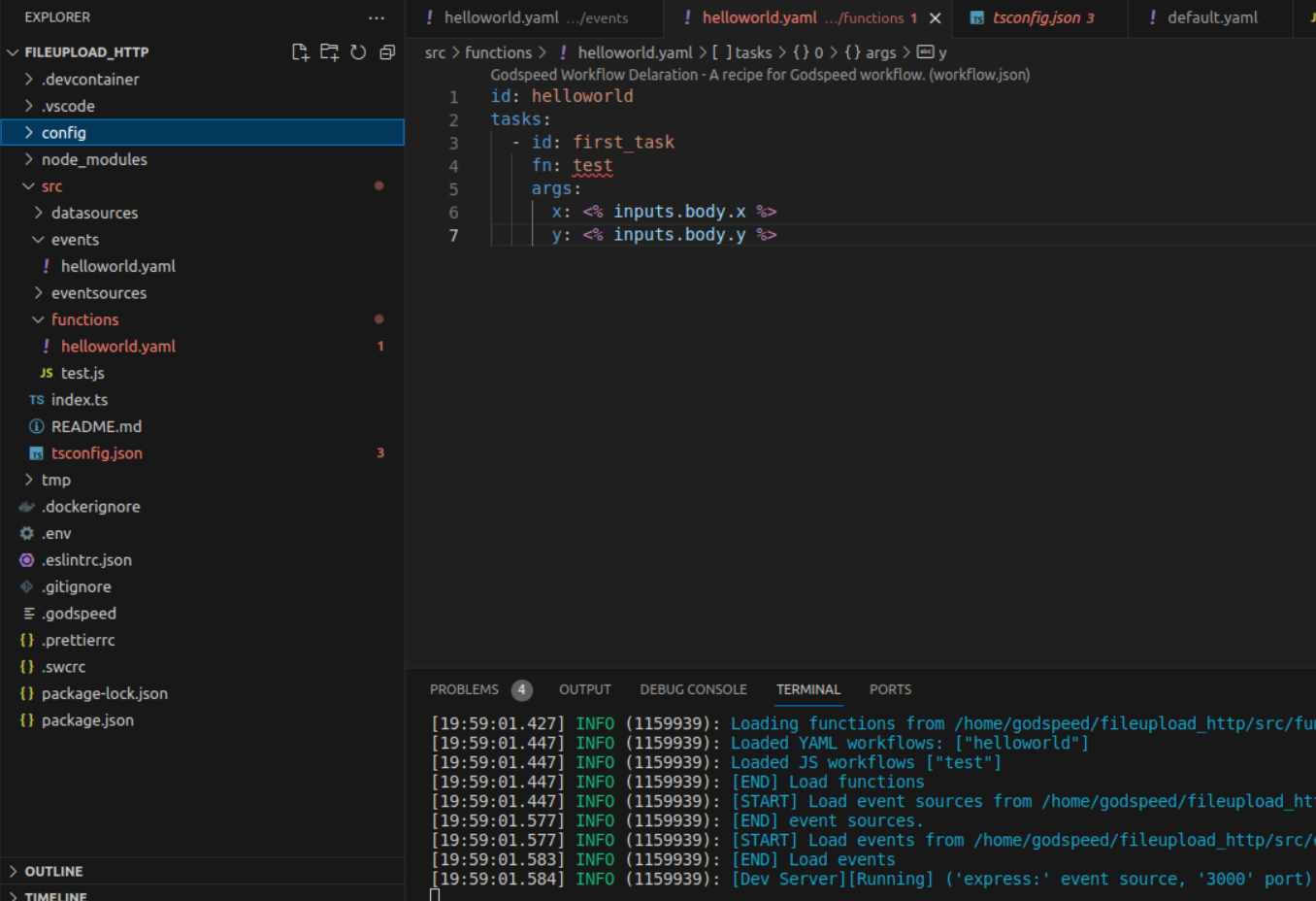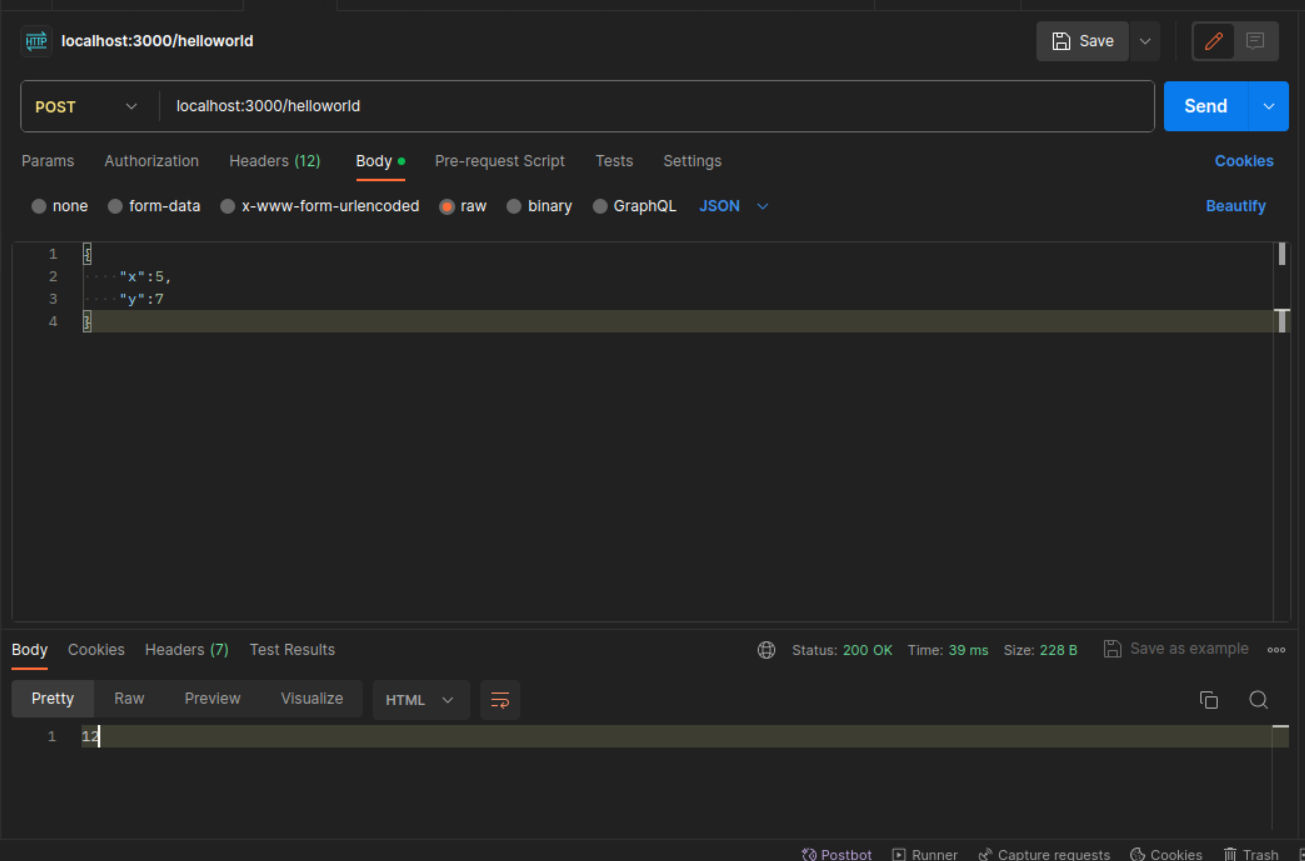Native Language Workflows
"Since the framework currently supports Node.js and Bun.js ecosystems, the native languages currently supported are TypeScript and JavaScript. This allows users to create custom functions. A native language workflow enables us to incorporate additional features using JavaScript or TypeScript, where we have the capability to implement intricate business logic."
Framework exported interfaces/functions allow developer with flexibility to write js/ts workflows while empowering them with the frameworks capabilities.
CTX
(Every function/workflow has access to the ctx object, which is passed as an argument, and furthermore, you can access its properties by destructuring it.)
what is CTX ?
CTX includes all the context specific information like tracing information, actor, environment, headers, payload, shared state (if this ctx is shared with other instruction threads, this part can be shared with them), immutable state (personal copy, personal view, for concurrency)
Inputs
Inputs Provide you all the Information you passed to event like headers, params, query params etc.
const {inputs} = ctx;
inputs.body = inputs.data.body;
Outputs
To access outputs of tasks executed before the current task, developer can destruct ctx object just like how inputs and datasources.If we have more then one task, we can access first task outputs in second task with Outputs object. we should access first task output by useing it's id.
const {outputs} = ctx;
const firstTaskOutput = outputs[firstTaskId]
datasources
With datasources we can access all Datasources, their clients and methods.
const { datasources} = ctx;
const responseData = await datasources.mongo.client.Restaurant.create({
data: inputs.body
})
childLogger
with childLogger you have accessibility to framework logger.
const { childLogger} = ctx;
childLogger.info('inputs: %o', inputs.body);
GSStatus
The GSStatus is a built-in class in Godspeed. We invoke it when we're prepared to define an API response and dispatch it.
Every workflow response should be in GSStatus. it has the below properties.
GSStatus Properties
success: boolean;
code?: number;
message?: string;
data?: any;
headers?: {
[key: string]: any;
};
We set the values as below
response = new GSStatus(true, 200, undefined, responseData, undefined);
ctx.outputs[id] = response;
module.exports = async(ctx)=>{
const {GSStatus} = require('@godspeedsystems/core');
const {inputs, childLogger, datasources} = ctx;
const prismaClient = datasources.mongo.client;
try {
inputs.body = inputs.data.body;
childLogger.info('inputs: %o', inputs.body);
const responseData = await prismaClient.Restaurant.create({
data: inputs.body
})
ctx.outputs[id] = responseData;
return new GSStatus(true, 200, undefined, responseData, undefined);
} catch (error) {
return new GSStatus(false, 500, undefined, error, undefined);
}
}
module.exports.id = 'main';
The above is a sample of how a js file is configured and used.For every function it comes up with a ctx called context which helps in maintained and passing the data with the functions and method
Calling javascript function from Yaml workflow
In YAML workflows, it is possible to invoke JavaScript functions to introduce special functionality or extensions.
- Scaffolding

- Event
Example event
http.post./helloworld:
fn: helloworld
body:
content:
application/json:
schema:
type: object
responses:
200:
content:
application/json:
schema:
type: number
- Yaml workflow
id: helloworld
tasks:
- id: first_task
fn: test
args:
x: <% inputs.body.x %>
y: <% inputs.body.y %>
- Javascript workflow
const {GSStatus} = require('@godspeedsystems/core');
module.exports = async(ctx,args)=>{
const responseData = parseInt(args.x)+parseInt(args.y);
return new GSStatus(true, 200, undefined, responseData, undefined);
};
This is how we access the args (ctx,args) here args is a json object
GSStatus is a built-in class in Godspeed that we utilize to return responses from workflows.
- Sample response

Calling js function from an event
Likewise, you have the option to directly invoke a JavaScript function from an event.
- Event
Example event
http.post./helloworld:
fn: test
body:
content:
application/json:
schema:
type: object
responses:
200:
content:
application/json:
schema:
type: number
- Javascript function
const {GSStatus} = require('@godspeedsystems/core');
module.exports = async(ctx)=>{
const x = parseInt(ctx.inputs.data.body.x)
const y = parseInt(ctx.inputs.data.body.y)
const responseData = x+y
return new GSStatus(true, 200, undefined, responseData, undefined);
};
When calling a JavaScript function directly from the event, ensure that you access the inputs from the ctx, as demonstrated in the provided JavaScript file.